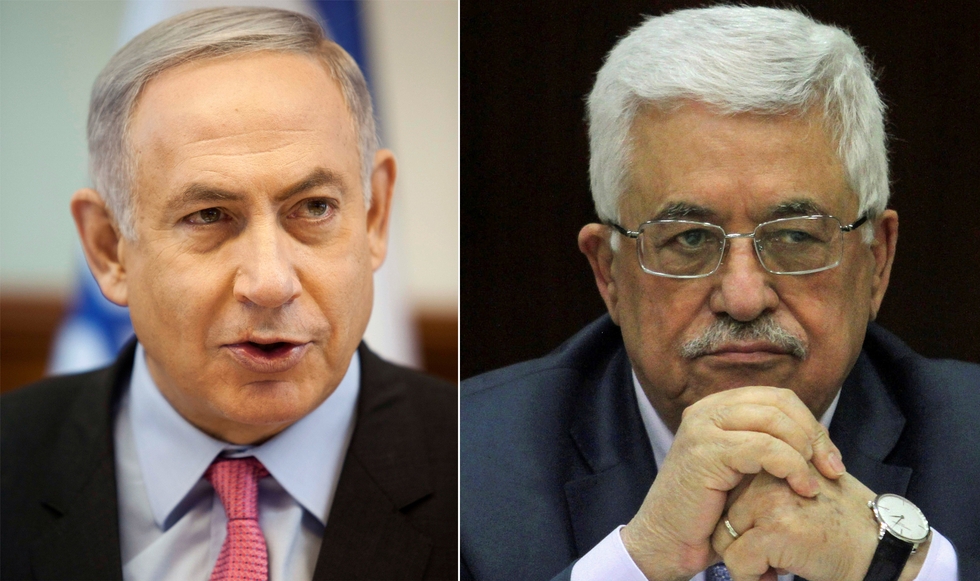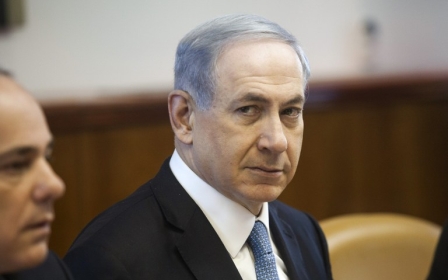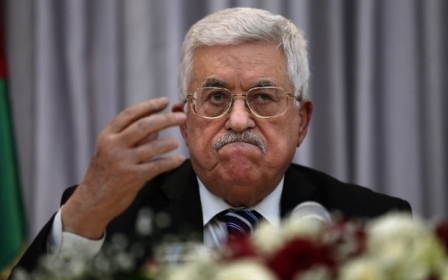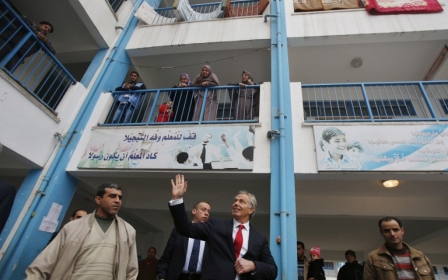Israel and Palestine trade blame for Moscow talks collapse

Russia's deputy foreign minister and peace envoy to the Middle East told a Palestinian delegation in Ramallah on Tuesday that proposed talks in Moscow had been called off, a senior Palestinian official told Middle East Eye.
Israeli Prime Minister Benjamin Netanyahu reportedly told Russia's Mikhail Bogdanov during a meeting in Jerusalem on Monday that he was no longer interested in talks with Palestinian Authority President Mahmoud Abbas.
“Bogdanov told us frankly that Netanyahu not only rejected the Palestinian demands for the meeting – such as a settlements freeze and the release of the pre-Oslo prisoners – but also that a meeting with Abbas is no longer one of his priorities,” the Palestinian official, who spoke on condition of anonymity, told MEE.
“Netanyahu said his priority now is two things: fighting terrorism and making peace with Arab counties,” he added.
According to the official, the Russian envoy quoted Netanyahu as saying: “When I make peace with the Arabs, Abbas will join us – so let him stand alone.”
‘A photo opportunity and nothing more’
Despite the reported collapse of the talks, Bodganov struck an optimistic tone with the press following his meeting with the Palestinian delegation on Tuesday, saying that work continues on "the date, form and content of the meeting".
Palestinian officials were more pessimistic, however, saying that a meeting was now unlikely to take place.
“When are we going to agree with Netanyahu on the content of the meeting? It’s very difficult,” said Jebrel Rajoub, an aide to the Palestinian Authority leader.
“President Abbas was clear with the Russians, he told them: we want a meaningful process, and such a process requires a solid foundation, such as a settlements freeze, prisoner release and recognising the ‘67 lines as the basis for the talks. Otherwise the meeting will be a photo opportunity and nothing more,” Rajoub said.
Palestinian officials accused Netanyahu of using the proposed Moscow talks to undermine a similar French initiative.
Ahmad Majdalani, another aide to President Abbas, told MEE: “Netanyahu hates the French initiative because it establishes an international umbrella. But he can’t boycott the French international conference for fear of the repercussions, like possible French recognition of the state of Palestine. He therefore resorted to Egyptian president Abdel-Fattah al-Sisi to press the Palestinians to return to the direct talks - when Sisi didn’t do that he went to the Russians, knowing their big influence on the Palestinians.
“President Abbas told the Russians he agreed in principle to meeting Netanyahu, but in order to have a successful meeting that can pave the way for a Russian role in the peace process, you need to have the basics, which start from a settlements freeze – the issue decided by the Quartet in the famous Road Map – and the release of pre-Oslo prisoners.
“The Russians, who are eager to regain their role in the Middle East, understand the Palestinian point of view. They went back to Netanyahu and asked him to do something to bring the Palestinians back to the table, but Netanyahu, who is leading a right-wing government, said: ‘No, I’m no longer interested.’”
New MEE newsletter: Jerusalem Dispatch
Sign up to get the latest insights and analysis on Israel-Palestine, alongside Turkey Unpacked and other MEE newsletters
Middle East Eye delivers independent and unrivalled coverage and analysis of the Middle East, North Africa and beyond. To learn more about republishing this content and the associated fees, please fill out this form. More about MEE can be found here.




